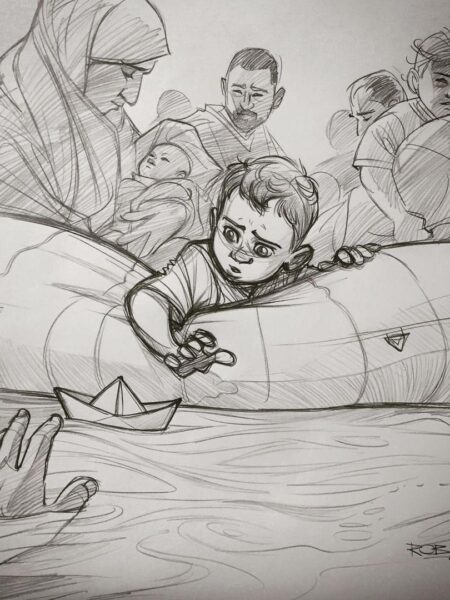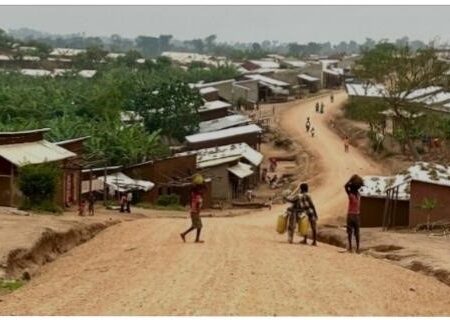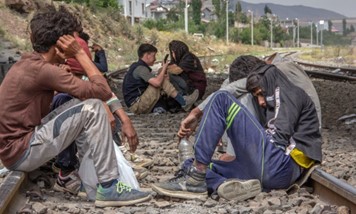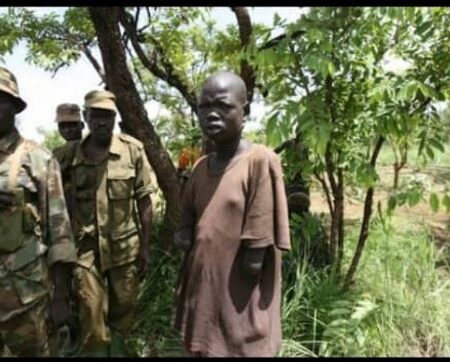For centuries the world has been dealing with refugees and immigrants, it is the case of most countries past and present. Even though still today people don’t understand fully these terms, and they have many stereotypes and prejudices about them.
Starting from this point I looked up the juridical definition of both terms and did some interviews with refugees in Italy of different countries, genders and ages, in which they tell a brief story about what they experienced becoming refugees and how this political title effects their identity.
Refugee: The 1951 Refugee Convention is a key legal document and defines a refugee as: “someone who is unable or unwilling to return to their country of origin owing to a well-founded fear of being persecuted for reasons of race, religion, nationality, membership of a particular social group, or political opinion.”
Immigrant: An immigrant is a person who moves from one country to another.
The word “migrant” is being used in place of “immigrant.” A migrant is a person who moves from one place to another within the same country.
“Immigrant” is one of the most used words by the Italian media, (Notizie di chiusura. Sesto Rapporto Carta di Roma 2018 (p. 31).) which makes me think no matter how it is used, and what the purpose of it, it affects how people see it, that’s why I thought of making this project. Oral history gives the opportunity to clarify things, to go deeper into the arguments and to give voice to those whom the argument most concerns.
Picture 1, Wordcloud of 600 words most frequently used in the media titles (2013-2018).
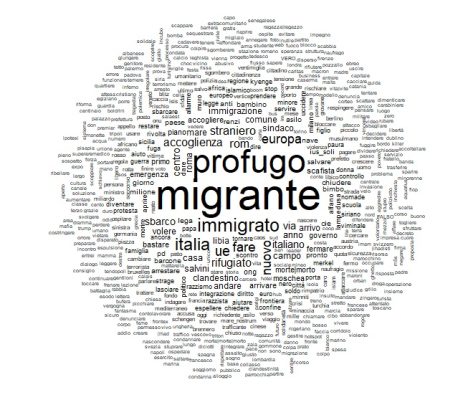
Through my experience of being myself a refugee, I noticed that there is this idea that if you are a refugee you are different. For many people it’s associated with:
war, poverity, jobless, homeless, no language knowledge, arrived by boat, saddness…)
others would classify refugees into two groups, the good refugee/immigrant and the bad refugee/immigrant. If you study, learn the language, work and do your duties you’re the good one, while if you don’t have documents, you don’t speak the language, etc… You’re the bad one, briefly, if you are a refugee/immigrant you don’t have the choice of “normality”
In the following there are some interviews I did with refugee individuals in Italy:
First interview:
Hanna is a 27 Syrian guy, in his interview said that he is a student at the University of Turin and he’s also a volunteer in Green Cross, he volunteered during the Covid epidemic, when people knew that he was a refugee they were “SHOCKED”, saying that a refugee usually aims to get help not to give it. If you’re a refugee, he said: people wouldn’t understand that you can also be successful person, as if one of the things cancels the other out.
Second interview:
Nuha is a 34 single mother, she’s a teacher and a chef.
Nuha’s answer to the question: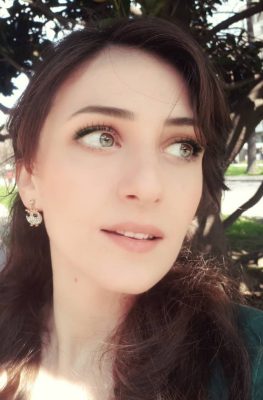 Did you face a situation where people judge you (in a positive or a negative way) just because you’re a refugee without knowing you or giving importance to your character?
Did you face a situation where people judge you (in a positive or a negative way) just because you’re a refugee without knowing you or giving importance to your character?
Was: Unfortunately yes, it happened many times that people would comment my physical shape saying you are blonde with green eyes you can’t be Arab, you look more like an Italian thinking that it’s a compliment.
Others would go: You don’t wear a hijab covering your hair, in Syria there are only Muslims.
You got a very expensive scholarship and it wasn’t supposed to be for immigrants/refugees how did you get it?!
Others would say that I’m too strong and ambitious to be a refugee, many said: if I were you I would probably be enter a depresion.
Nuha thinks that the difference between the various comments and between those who judge you by your appearance and those who wait to know you better, is the curiosity for knowledge and not being dependent on the media and what other people think and say.
I brought you some definitions from ‘’The Refugee Dictionary, UK for UNHCR, 2021’’ it is a whole book full of different definitions of the word ‘refugee’, in many definitions people defined refugee thinking of a friend, a relative, a neighbour.
A refugee is (n) my father who
arrived in England in 1921 not
speaking a word of English, and
ended up as M&S’ chief food
technologist, revolutionising the
British food production industry
– Philip, Wokin
A refugee is (n) unimaginable
strength, hope and inspiration!!
– Tracey, London
A refugee is (n) my strong, resilient,
damaged friend who won’t let her past
define her, who fights discrimination
every day, who is building for the future
for her and her son, who has taught and
given me so much, who will contribute to
a more just society, who shows us how
to live – Jenny, London
A refugee is (n) a person who is
rejected in his /her own place and
accepted with love, respect and
sympathy somewhere else, given
another chance to fix their lives
messed up by their own mistakes as
well misguided, mistreated, deceived,
persecuted, who would be always
opposed, bullied – Shakila, London
A refugee is (n) any person escaping
psychological or physical harm, imposed
by the ruling authority of their country of
residence – Ingrid, Gilwern
Refugees, immigrants, migrants are just normal people who have one single thing in common (their political status) and they have the right of normality, they’re normal people and they have the right to be treated as such.

